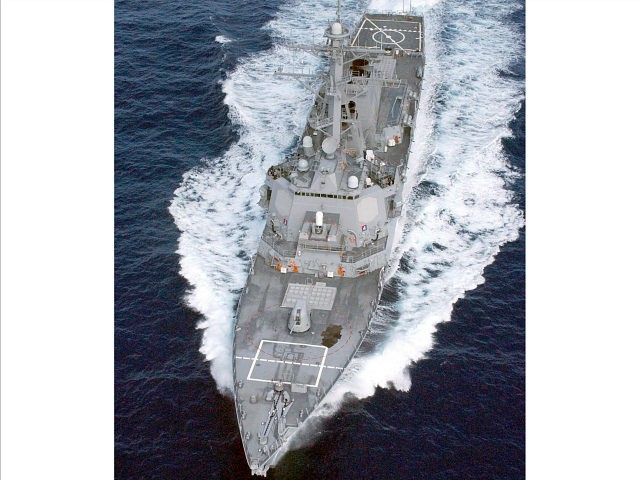President Donald Trump’s administration has executed a new round of sanctions against 13 individuals and 13 companies involved in procuring materials and technology in support of Iran’s ballistic missile program and the country’s hard-line Islamic Revolutionary Guard Corps (IRGC).
In a statement announcing the sanctions, the U.S. Treasury Department said, “This action reflects the United States’ commitment to enforcing sanctions on Iran with respect to its ballistic missile program and destabilizing activities in the region…”
“Iran’s continued support for terrorism and development of its ballistic missile program poses a threat to the region, to our partners worldwide, and to the United States. Today’s action is part of Treasury’s ongoing efforts to counter Iranian malign activity abroad that is outside the scope of the [2015 nuclear agreement with six world powers],” also said John Smith, director of Treasury’s Office of Foreign Assets Control (OFAC).
The fresh sanctions have been implemented in the wake of Iran’s test last Sunday of a ballistic missile believed to have the capacity of carrying a nuclear weapon.
“The Islamic Republic of Iran is the world’s leading state sponsor of terrorism and engages in and supports violent activities that destabilize the Middle East,” noted retired Lt. Gen. Michael Flynn, White House national security adviser. “This behavior seems continuous despite the very favorable deal given to Iran by the Obama Administration. These sanctions target these behaviors.”
“Iran’s senior leadership continues to threaten the United States and our allies… the days of turning a blind eye to Iran’s hostile and belligerent actions toward the United States and the world community are over,” he added.
The new sanctions also come as the American Navy destroyer USS Cole is patrolling the Red Sea and Bab el Mandeb strait off the coast of Yemen to defend waters where a Saudi frigate was attacked earlier this week by Iran-backed Houthi rebels.
Breaking News: USS Cole moved to Gulf of Aden off Yemen days after Iran-backed Houthis rebels attacked Saudi ship pic.twitter.com/NzDk3xI3nu
— Fox News (@FoxNews) February 3, 2017
Stars and Stripes reports:
Three U.S. warships are near the strait, the U.S. defense official said on the condition of anonymity. The USS Makin Island, an amphibious assault ship, and the USS Comstock, a dock landing ship, are monitoring the strait, but the Cole, which is now at the southern end of the strait, is there “for no other reason than to respond to Bab el Mandeb incidents,” the official said on the condition of anonymity.
According to the Pentagon, the Iran-allied Shiite Houthis have placed mines in the water near the entrance to the Bab el-Mandeb strait.
Fox News has learned from two unnamed defense officials that Monday’s deadly Houthi attack on the Saudi frigate may have been intended for an American warship.
Houthi rebels killed two Saudi sailors and wounded three others. They have attacked U.S. warships in the past.
In response to rebukes and warnings related to Iran’s recent missile test from President Trump and members of his administration, Iran has struck a defiant tone against the U.S., claiming the missile tests do not violate any United Nations resolution or the nuclear agreement.
The Treasury Department said the new penalties are “fully consistent” with the 2015 nuclear accord that lifted sanctions against Tehran in exchange for limits on its nuclear program.
“While they [missiles tests] didn’t contravene the nuclear accord signed in 2015, the missile tests are seen by some nations as going against a UN Security Council resolution that enshrines the agreement,” reports Bloomberg.
President Trump has intensified the pressure on Iran over the tests, writing on Twitter Friday that he will not be “kind” to the Islamic Republic like the former commander-in-chief Barack Obama.
“Iran is playing with fire,” he warned.
Iran is playing with fire – they don't appreciate how "kind" President Obama was to them. Not me!
— Donald J. Trump (@realDonaldTrump) February 3, 2017
Nevertheless, Iran’s Foreign Minister Mohammad Javad Zarif responded in a tweet of his own, saying the Islamic Republic is “unmoved by threats as we derive security from our people.”
Iran unmoved by threats as we derive security from our people. We'll never initiate war, but we can only rely on our own means of defense. pic.twitter.com/TxlSEL8rjj
— Javad Zarif (@JZarif) February 3, 2017
“We’ll never initiate war, but we can only rely on our own means of defense,” added the Iranian official.
On Friday, the U.S. Treasury Department announced that 13 Iranian individuals and 12 entities have been added to its specially designated nationals (SDN) list, which means their assets are blocked and Americans are generally prohibited from dealing with them.
Among the entities are companies based in Tehran, United Arab Emirates, China, and Lebanon, home to Iran’s narco-terrorist proxy Hezbollah.
Iran is also covered by President Trump’s executive order that imposes restrictions on immigration from seven Muslim-majority as part of the new administration’s effort to strengthen U.S. national security.
A Trump administration told reporters on condition of anonymity that the sanctions will not affect a deal signed in December between airplane manufacturer Boeing Co. and Iran’s national carrier.

COMMENTS
Please let us know if you're having issues with commenting.